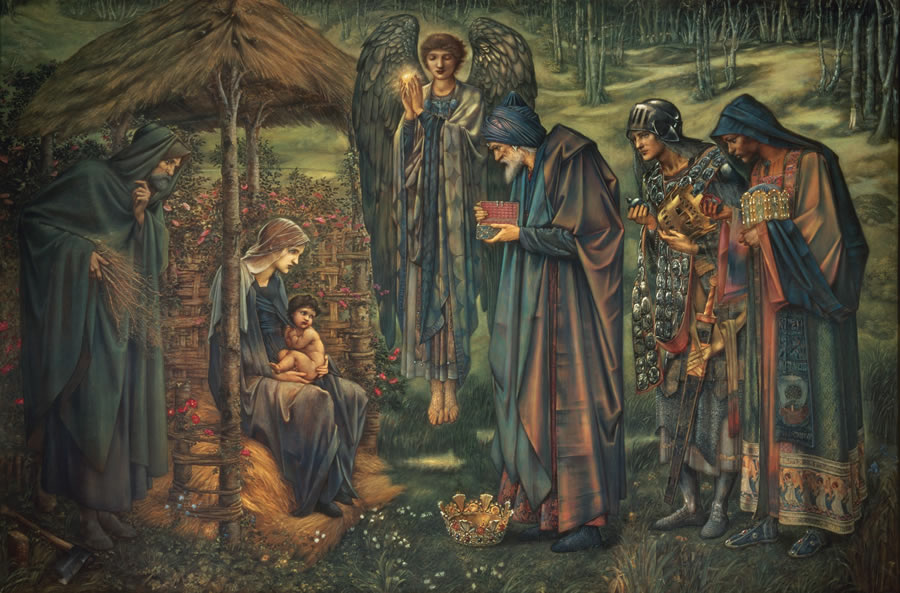
The Feast of the Epiphany
by Rev. Gabriel Baltes, O.S.B. | 01/05/2025 | A Message from Our PastorDear Parishioners,
Today the Church celebrates the Epiphany of the Lord. In times past, this feast was consistently observed on January 6 (when most of the world continues to observe it), thus completing the 12 days of Christmas. The 12th day is actually Jan. 5, the eve of the Epiphany, because the greatest solemnities in the Catholic Church begin the evening before. The biblical narrative of the Epiphany, as recorded in the Gospel of Matthew 2:1-12, and the various symbols and customs that have emerged from this story speak to the human heart on multiple levels of invitation.
One such invitation is to re-think, or re-purpose, the times of darkness that punctuate our lives. We tend to view darkness as something negative and undesirable, and it certainly can be so. But there are other occasions when darkness becomes a time of growth during which we discover significant lessons about ourselves and about life.
Jesus’ epiphany, as recorded by Matthew, unfolds in the darkness. The Magi, who were most likely astrologers and fortune tellers, traveling from what may have been Persia, search for a newborn king at night. Precisely because it is night, they are able to discern meaning from the stars, one in particular. Had it been daytime, they would never have seen this star. Darkness thus provided the context in which to see this new star – this new light.
Could this not be true for us as well, that is, times of darkness becoming opportunities to recognize light? This might be something to which the New Year of 2025 is calling us. In the varied dark challenges and hardships that we will encounter during the next 12 months, we can search for light and meaning. We can imitate the courageous boldness of the Magi who defied convention, kings and the blinding darkness of night, because faith assured them, as it does us, that there was a unique experience of light that awaited them, and us.
But not only the Magi, another seasonal symbol, the Christmas tree, calls us to be defiant in the face of darkness as well. The following poem, by author and theologian John Shea, captures this sentiment with mundane but imaginative eloquence. That trees wish to speak to us and challenge our preconceived understandings is an example of that magical quality to Christmas that we seem to lose as adults. Might we re-capture that child-like dimension in ourselves by daring to believe that some of the most ordinary realities of the natural world possess profound messages that we desperately need to hear; realities like stars, trees, and journeys in the night?
Defiant Christmas Trees
Our Christmas trees want to talk to us.
The greater darkness of December can take its toll
and strengthen what afflicts us.
Our Christmas trees beg to differ.
Their branches are full, leafy, strung with lights.
Their brightness is defiant.
We may want a perfect world.
But that’s not always what we get.
Welcome catastrophic weather
a pandemic,
threatened health,
overstressed work,
dipping finances,
struggling relationships,
and a society and a world
either slightly or wildly insane.
Our Christmas trees glow.
Their lights whisper:
“Give all the things that afflict you their due,
but do not give them your soul.
You are more than the surrounding darkness.”
—John Shea
From the collection Borrowing Wonder: Christmas Poems and Reflections to Open the Heart, Published by Liturgical Press, 2024
BACK TO LIST